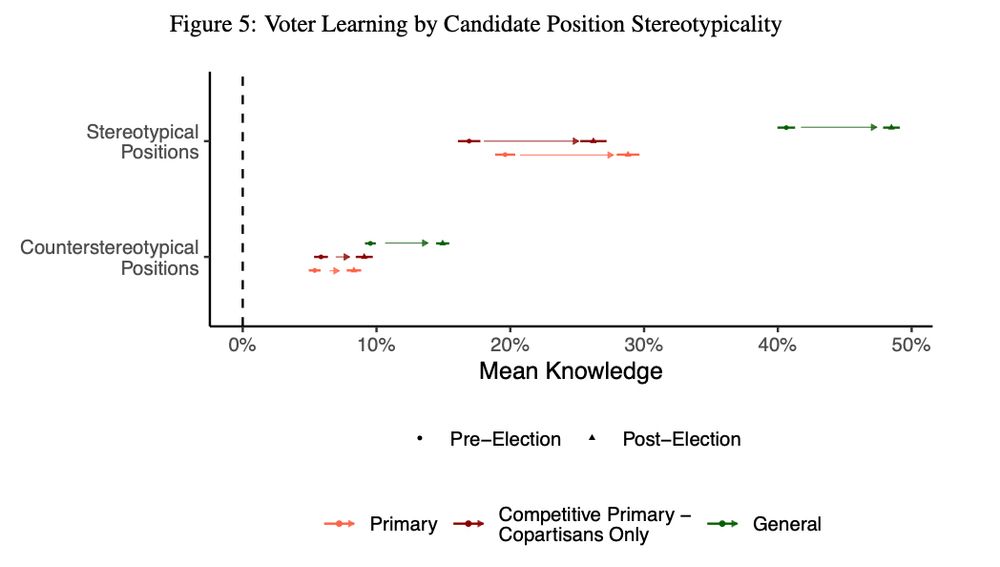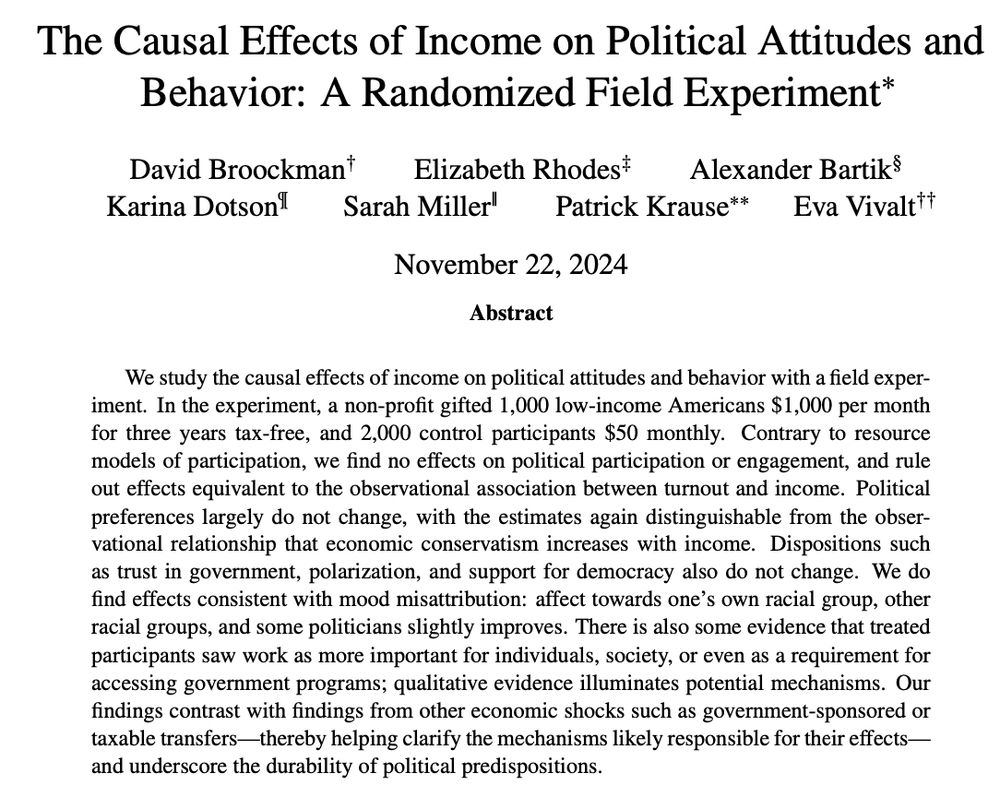






In generals, this includes when the closest candidate is an outpartisan–party loyalty isn’t everything.


In generals, this includes when the closest candidate is an outpartisan–party loyalty isn’t everything.
By election day, general election voters correctly identify 40% of candidate positions vs just 22% for primary voters.

By election day, general election voters correctly identify 40% of candidate positions vs just 22% for primary voters.
We measure knowledge & learning of 122 candidate issue positions in the 2024 Congressional primaries and 269 candidate issue positions in the 2024 Congressional generals.

We measure knowledge & learning of 122 candidate issue positions in the 2024 Congressional primaries and 269 candidate issue positions in the 2024 Congressional generals.
• Primary voters who closely follow politics & prefer extremists
• General election voters who are too ignorant of candidate positions—or too “intoxicated” by party loyalty—to vote for moderates over extremists
But our data tells a different story…

• Primary voters who closely follow politics & prefer extremists
• General election voters who are too ignorant of candidate positions—or too “intoxicated” by party loyalty—to vote for moderates over extremists
But our data tells a different story…
We conducted a 4-wave panel of thousands of voters in 27 districts during last year’s primary AND general elections to trace polarization’s roots
The results challenge conventional wisdom… and suggest lessons for parties🧵👇

We conducted a 4-wave panel of thousands of voters in 27 districts during last year’s primary AND general elections to trace polarization’s roots
The results challenge conventional wisdom… and suggest lessons for parties🧵👇


Surprising answer: no!
Political dispositions are hard to change! E.g., in interviews, some who received the transfer said they thought *others* would misuse it.

Surprising answer: no!
Political dispositions are hard to change! E.g., in interviews, some who received the transfer said they thought *others* would misuse it.
But no fx on dispositions like authoritarianism or trust in democracy.


But no fx on dispositions like authoritarianism or trust in democracy.

But we find nulls on participation, knowledge, etc. & can rule out observational association.

But we find nulls on participation, knowledge, etc. & can rule out observational association.
The OpenResearch Unconditional income Study reveals surprising findings about the effects of income on politics... 🧵

The OpenResearch Unconditional income Study reveals surprising findings about the effects of income on politics... 🧵

Although, contrary to maximalist accounts, didn't change views that the networks didn't cover extensively.


Although, contrary to maximalist accounts, didn't change views that the networks didn't cover extensively.



This is the exact audience existing research argues isn't persuaded by partisan TV because it simply cannot be persuaded.
But we find it can...

This is the exact audience existing research argues isn't persuaded by partisan TV because it simply cannot be persuaded.
But we find it can...
These findings suggest partisan TV viewers could be persuaded.

These findings suggest partisan TV viewers could be persuaded.
BUT, partisan TV's audience isn't all extreme--weak partisans & Independents watch it, and their opinions aren't hugely different. There's room for them to be persuaded.


BUT, partisan TV's audience isn't all extreme--weak partisans & Independents watch it, and their opinions aren't hugely different. There's room for them to be persuaded.
1. Partisan media's audience is sizable. No, most people don't want a lot of partisan TV -- but many do!

1. Partisan media's audience is sizable. No, most people don't want a lot of partisan TV -- but many do!
There's been much skepticism that partisan TV actually affects public opinion.
Our findings rebut that skepticism: partisan media matters! 🧵


There's been much skepticism that partisan TV actually affects public opinion.
Our findings rebut that skepticism: partisan media matters! 🧵

